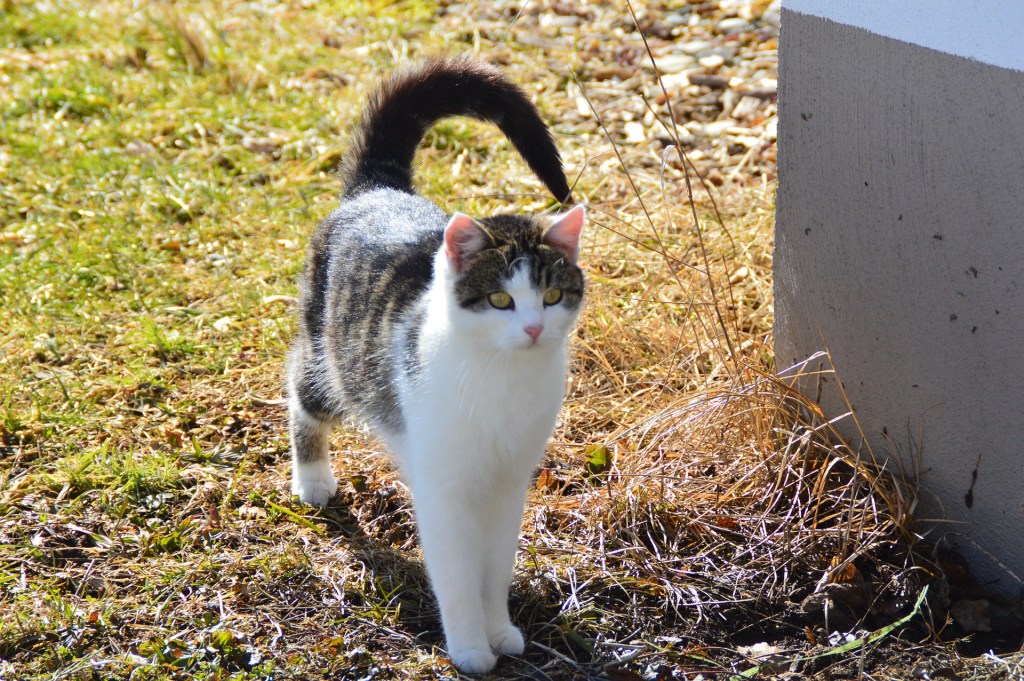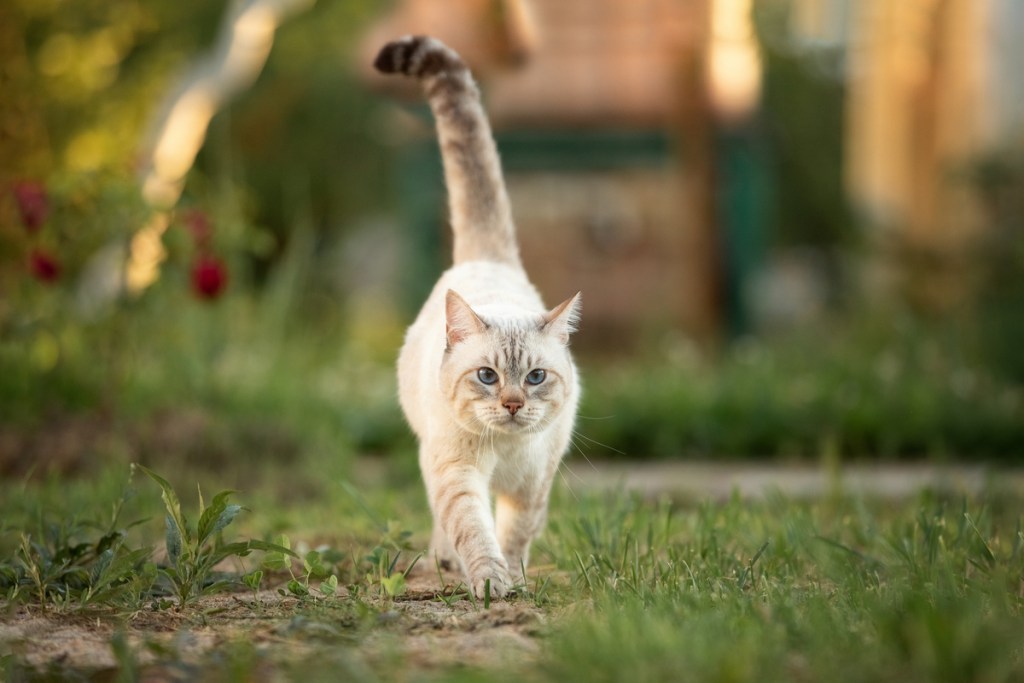
Let’s be honest — cat body language can be hard to decipher. Especially if you’re not the most experienced with felines, it’s easy to mix up a sign of affection with a sign of annoyance. Cats are extremely subtle, but if you’re willing to learn what to look out for, you can begin to understand all of their little hints.
From the tips of their ears to the pads of their paws, there’s a lot to pay attention to. One great starting point, though, is a cat’s tail. While they use their tail differently than a dog might, there’s still a lot of communication that owners can pick up on. But what does it mean when a cat wags their tail?

Do cats wag their tails like dogs do?
If you grew up with dogs, you’ll know that they wag their tails when feeling happy, excited, interested, and even stressed. Different kinds of tail wags mean different things, but many folks often simplify it by saying that tail wags are a sign of happiness. That’s true in many cases, but it’s important to note that feline tails don’t quite work the same way. In fact, some people take it in the opposite direction by assuming that cat tail “wags” mean they’re angry.
In truth, cat tail wagging is just as variable as the meaning of dog tail wags. They can indicate happiness, anger, or even curiosity — it’s all about knowing what to watch for.

Cat tail wagging meanings
Because the movements of a cat’s tail can be an indicator of emotions, it’s extra important to pay attention to the details, like the height of the tail and the way it’s moving. It’s just like reading a cat’s body language — except on their tail.
Tail straight upright
If a cat’s tail is standing up straight, your feline is likely feeling confident and friendly. This is a green light for petting and interacting and is even how kittens greet their mother. PetMD explains that a 1997 study from the University of Southampton showed that “cats were willing to readily approach a cat-shaped silhouette if it had a raised tail but were reluctant to approach the silhouette if it had a lowered tail.”
Tail lowered or between a cat’s legs
Alternatively, a cat with a lowered tail is likely feeling afraid or anxious. They are probably not open to interaction and may even be in pain if their tail is tucked up between their legs. Similarly, a cat that’s lying down with their tail wrapped around themselves may be feeling vulnerable, defensive, or even under the weather.
Tail in the shape of a hook or question mark
When a cat holds their tail upright but curls at the end, like a hook or question mark, they’re feeling happy and confident. This is another invitation for petting and interaction.
Tail quivering or thumping on the ground
Feline tail positions are important to know about, but the different ways cats move their tails can say a lot, too. If a cat’s tail is upright but quivering, for example, they’re either feeling excited, social, or ready to mark their territory. Alternatively, a cat is likely annoyed or irritated if their whole tail thumps on the ground. If just the tip of their tail twitches, though, they could be playful, in hunting mode, or mildly irritated.
There’s a lot to keep in mind when it comes to a cat’s tail. With a little extra education and attention, though, you’ll always know how your feline is feeling thanks to their behind’s body language.



